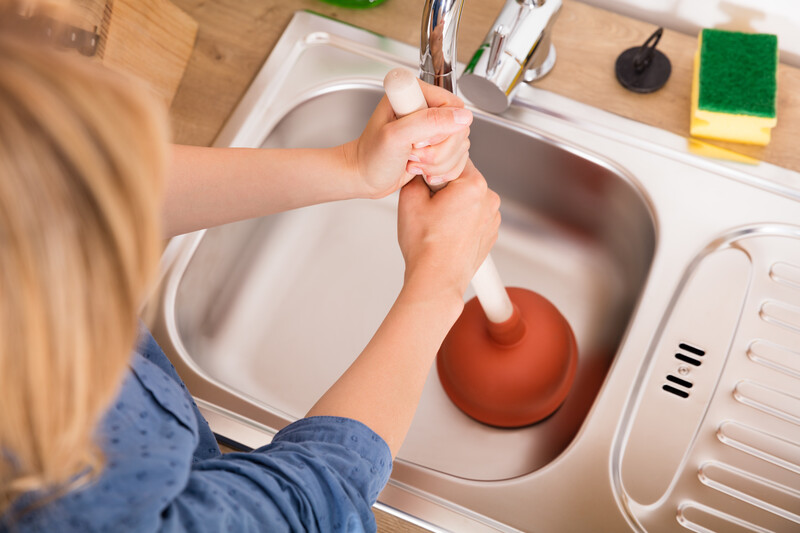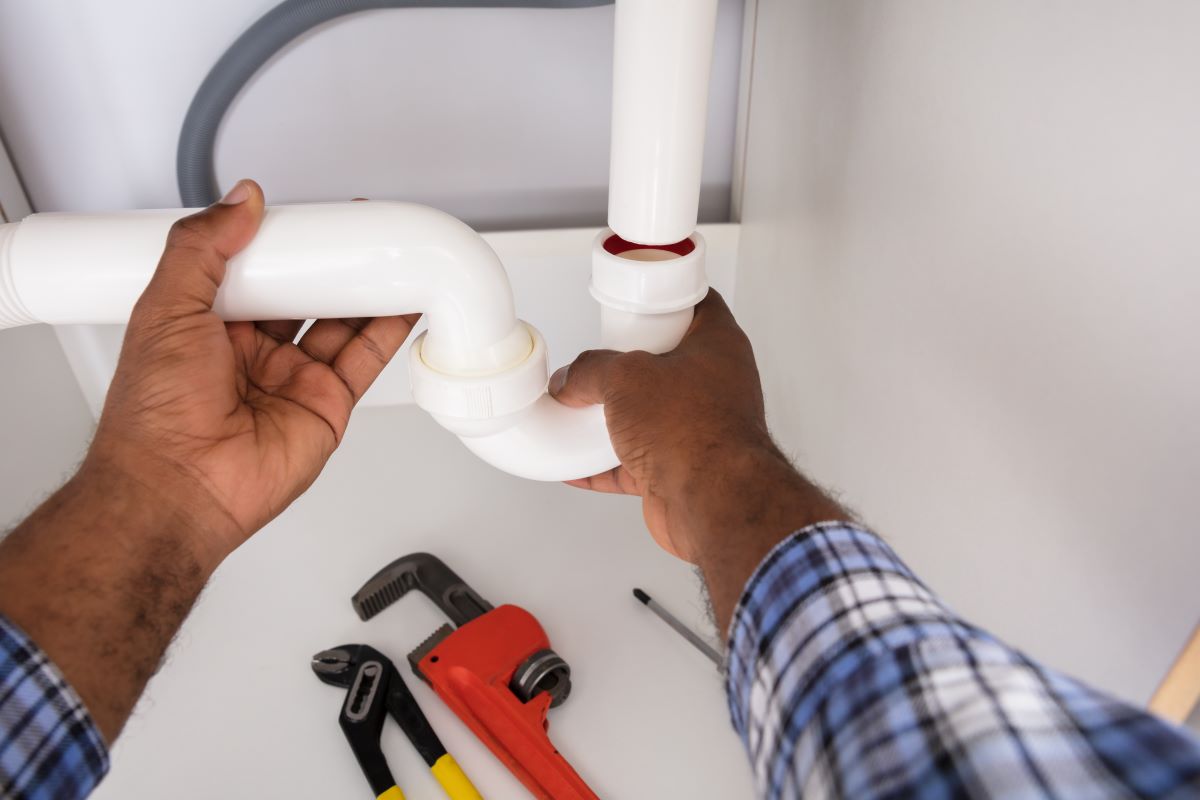They are making a number of great annotation relating to Solved! How to Fix a Slow Sink Drain in general in the article which follows.

Intro
We've all been there: You're brushing your teeth or washing your hands, and you notice the water pooling in the sink. As opposed to rapidly swirling down the tubes, it sticks around, transforming your once-refreshing early morning regimen right into a miniature overload scene. A slow-draining sink isn't simply frustrating; it's often a sign of larger pipes issues lurking under the surface area. Fortunately is that many slow-draining sinks can be fixed with a little knowledge, a couple of basic devices, and some persistence. All set to tackle this task head-on? Let's roll up our sleeves and dive right in.
Comprehending the Sources Of a Slow-Draining Sink
Before you start poking around in your pipes, it aids to understand what might be causing the slowdown. Recognizing the root cause makes it much easier to select the appropriate fix.
Tools and Products You'll Require
The right tools make all the difference. Thankfully, you will not require a fully stocked plumbing professional's van to get the job done.
Step-by-Step Guide to Fixing a Slow-Draining Sink
Now, let's enter the nitty-gritty. This detailed procedure will certainly assist you with basic techniques to restore your sink's water drainage.
Action 1: Eliminate and Tidy the Stopper
Often, the stopper (that tiny plug you push down to block water) is the initial culprit. Remove it meticulously and wipe any hair or crud entraped around its base. Rinse it completely prior to placing it back in position.
Step 2: Utilize a Plunger to Dislodge Particles
Got that bettor ready? Position it over the drainpipe and give it a couple of company pumps. The idea is to produce suction that can loosen up any kind of clog. If you see little bits of debris drifting up, you get on the ideal track.
Step 3: Attempt a Drainpipe Serpent or Cable Hanger
If the bettor does not suffice, it's time to highlight the drain serpent. Carefully feed it right into the drain and spin as you go. You could really feel some resistance-- that's likely the clog. Keep twisting and pulling until you eliminate the obstruction. If you do not have a drainpipe snake, a straightened out wire hanger can work in a pinch.
Tip 4: Apply a DIY Drainpipe Cleaner
An all-natural cleaner made from baking soft drink and vinegar can break down residual grime. Put half a mug of cooking soft drink right into the drain, followed by half a mug of vinegar. Allow it fizz for around 15 mins, after that flush with warm water. This chain reaction commonly does wonders for minor clogs.
Tip 5: Rebuild and Test the Sink
Placed everything back together and run the faucet. Does the water currently swirl away at a decent rate? If yes, provide yourself a pat on the back. If not, don't misery-- there are still a few more dress up your sleeve.
Crucial Devices for Do It Yourself Repairs
A bettor is your best starting factor. A tiny, sink-sized bettor produces suction that can displace minor clogs. For even more persistent obstructions, a drainpipe serpent (often called a plumber's auger) functions marvels. A pair of gloves, a flashlight, and perhaps a set of safety goggles are likewise helpful.
Suggested Cleansing Solutions
Mild dish soap and warm water can help break down greasy accumulation. A mix of cooking soda and vinegar is a reliable home remedy, and chemical cleaners offer an even more environmentally friendly technique. Maintain chemical drain cleansers as a last hope, as they can be harsh on your pipelines.
Usual Offenders Behind Slow Drainage
So, what's blocking things up? Generally, it's a mix of day-to-day particles-- believe hair, soap residue, tooth paste residue, and remaining food bits. In time, these tiny bits build up and cling to the pipe wall surfaces, progressively narrowing the flow and making it harder for water to go through. In some cases, mineral deposits from hard water can additionally contribute to the gunk, producing the best storm for persistent clogs.
When is it Time to Take Action?
If you discover the water draining slower than normal, it's a good idea to intervene sooner rather than later on. Waiting too long can result in finish obstructions, undesirable smells, or even pipeline damage. If the water takes more than a couple of secs to remove after switching off the faucet, consider it a red flag and get ready to put on your DIY hat.
Safety And Security First: Safety Measures and Preparations
Prior to you launch into unclogging mode, think of security. You're managing potentially filthy water and debris, so slip on a pair of gloves. If you're utilizing chemical cleansers, ensure the space is well-ventilated and comply with the directions on the label.
Protective Equipment and Office Arrangement
Set some old towels or cloths around the sink area to capture sprinkles. Eliminate any type of products that could get in your method, like soap dispensers or tooth brush holders. See to it you have good illumination-- grab a flashlight if needed.
Alternative Methods for Stubborn Clogs
Not all clogs are developed equal. If your sink still rejects to work together, take into consideration these different services.
Baking Soda and Vinegar Technique
We currently touched on this, yet it's worth noting once more. This mild, green technique is much safer than chemical cleansers and usually quite effective.
Enzymatic Drainpipe Cleansers
Enzyme-based cleansers use natural germs to digest organic matter. They're a superb selection if you're aiming to prevent rough chemicals. Just bear in mind, they may take a bit longer to work their magic.
Chemical Drain Cleaners: Pros and Cons
Chemical cleaners can blast with challenging clogs quick, however they're not without drawbacks. They can produce heat and fumes, damages pipes if used exceedingly, and position environmental dangers. Utilize them sparingly, and constantly follow the directions very carefully.
Safety Nets to Keep Your Sink Flowing
Prevention is the most effective cure. By adopting a few simple behaviors, you can keep your sink from decreasing in the first place.
Regular Cleaning Up Habits
Clean down the sink basin and component area routinely. Eliminate hair or food particles prior to they have an opportunity to wash down the drainpipe.
Staying Clear Of Dangerous Compounds Down The Tubes
Think twice before unloading coffee premises, grease, or coarse vegetable scraps down the sink. These wrongdoers cling to pipe walls, creating clogs with time.
Routine Upkeep Checks
Schedule a quick monthly assessment. Run warm water through the sink for a few minutes, focusing on the circulation. If it seems slow-moving, act fast before it becomes a full-on obstruction.
When to Call a Specialist Plumbing Professional
Often, despite exactly how tough you try, that clog just will not budge. That's when it's time to generate the pros.
Signs That Suggest an Extra Major Concern
If your sink drains pipes slowly despite several efforts, or if you see water supporting in various other components (like your shower or bathroom), you might have a more significant pipes problem hiding much deeper in the system.
Stabilizing Do It Yourself Efforts with Professional Help
While do it yourself can save you cash and use a feeling of achievement, there's no embarassment in calling a specialist. A professional plumbing can assess your entire plumbing setup, ensuring there's no underlying damages or long-lasting problem that can cost you more down the road.
Contrasting Costs and Long-Term Solutions
Before making a decision, take into consideration the big picture. A cheap, quick fix may fix the trouble temporarily, but purchasing a much more irreversible service could save you cash and stress and anxiety in the long run.
Weighing the Costs of Do It Yourself vs. Specialist Repairs
Do it yourself solutions frequently set you back bit more than the price of a bettor or a container of baking soda. Professional solutions, on the other hand, featured a cost yet might protect against repetitive concerns and costly repair work later.
Purchasing Top Quality Fixtures and Upgrades
If your sink's style adds to frequent obstructions, it could be worth updating to higher-quality components or altering the plumbing layout. Consider this an investment in your house's capability and comfort.
Conclusion
A slow-draining sink can feel like a minor irritability, yet it's usually an indicator that your plumbing needs a little tender loving care. By recognizing the origin, utilizing the right tools and techniques, and dedicating to basic safety nets, you can keep your sink flowing easily. And when all else fails, never ever wait to call in a specialist-- your home's plumbing is worth the financial investment in care and maintenance.
Three Common Ways to Fix a Slow Drain
Baking Soda Method
Boil a full pot of water. Measure out cup of baking soda and pour it down the drain. Then take cup of the magical cleansing substance known as white vinegar and drop that down there too. Allow the mixture to fizz in the drain for five minutes as the vinegar and baking soda combine. Now dump in that whole pot of boiling water. This combination of cleaning substances should clear out anything that is causing your sink to drain slowly. If it doesn t...
Zip-It
If the baking soda method doesn t clear out your drain, it may be because a significant amount of hair and/or other debris has collected there and you need to remove it. Purchase a Zip-It tool at any home improvement or hardware store and insert it into your drain. It will catch any collected hair or debris that s blocking the flow of water. Pull it out. If it s got a big clump of hair, etc. on the end, you ve probably got your culprit.
Drain Cleaner
If these methods don t work, there is the standard drain cleaner that you can also buy in a hardware store or even your local grocery store. It s better if you can use a household solution, but these drain cleaners often work in a pinch. They re very simple to use. You generally just dump them in your drain and wait. If even this method is not effective, it may be time to call the plumber.
https://www.mrrooter.com/oneida/about-us/blog/2017/july/three-common-ways-to-fix-a-slow-drain/

We are very inquisitive about Solved! How to Fix a Slow Sink Drain and I'm hoping you appreciated my entry. Enjoyed reading our content? Please share it. Let other people discover it. Thanks for your time spent reading it.
Call Today